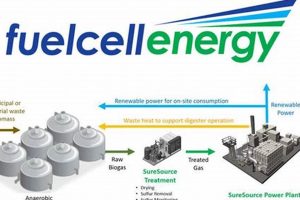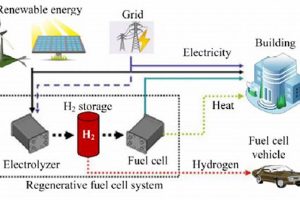
A device that generates electricity through a chemical reaction, consuming a fuel and an oxidant, is not inherently a producer of power from inexhaustible sources. The input determines whether the energy generated... Read more »

A technology that converts sunlight directly into electricity, leveraging the photovoltaic effect in semiconductor materials. These devices offer a clean and sustainable method of power generation, representing a key component in the... Read more »

Electrochemical devices known as fuel cells generate electricity through a chemical reaction between a fuel, typically hydrogen, and an oxidizing agent, often oxygen from the air. This process, unlike combustion, directly converts... Read more »

Fuel cells generate electricity through an electrochemical reaction between hydrogen and oxygen, producing only water as a byproduct. While the technology itself offers a clean pathway to energy conversion, the sustainability hinges... Read more »

Electrochemical devices that directly convert the chemical energy of a fuel, such as hydrogen, into electricity offer a clean and efficient power source. For example, hydrogen reacts with oxygen to produce electricity,... Read more »


